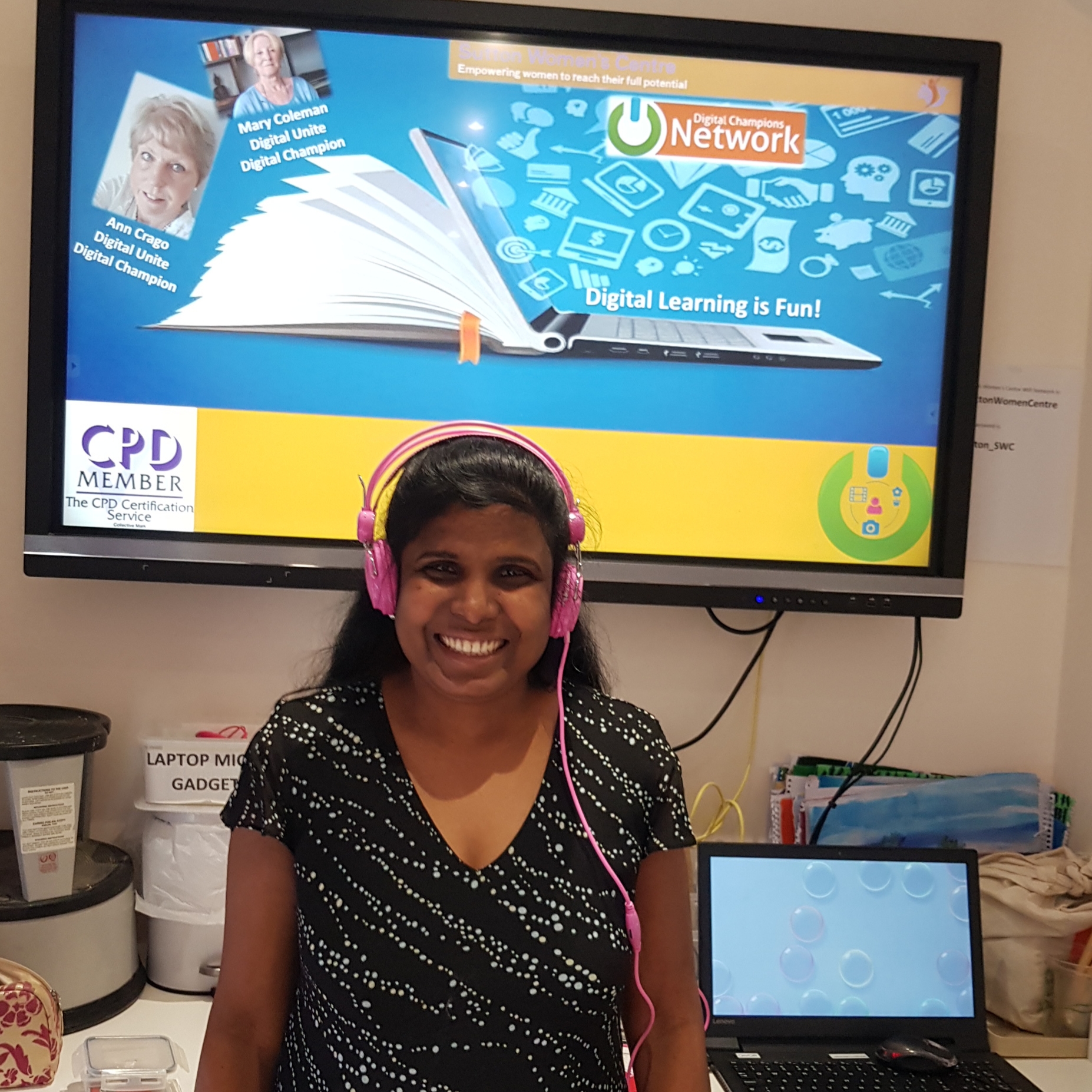Volunteers are at the heart of many Digital Champions programmes. Managing them is a real skill. And a good volunteer is an invaluable resource! We talked to some Project Managers on the Digital Champions Network (DCN) about how they do it.
1. Recruitment
Work out a clear recruitment process. It weeds out time wasters, but it also makes sure volunteers know exactly what they’re signing up for. Make sure it covers…
- The ethos and aims of your organisation.
- A very clear definition of the role, including responsibilities, training and minimum time commitments. Most projects want Digital Champions (DCs) to volunteer in a regular, long term way and this kind of volunteering may not suit everyone.
- A timetable of the process. With DBS checks and training, it can take around six weeks before volunteers can start and it helps to explain the process and manage expectations.
2. Onboarding
Again, clarity is key! Make sure volunteers know exactly what’s expected of them and have the training and support to do it
- Have a volunteer's handbook: this can take time to create, but worth the effort. Outline everything that you expect from them and what they can expect from the organisation. Cover ALL the likely issues that can come up, from claiming expenses to dealing with complaints. There are links to templates below.
- Provide the right training: some organisations mandate what training their DCs do, others make recommendations but leave it up to them. Be clear about what training you’re expecting them to do, and make sure it’s done.
- Tailor their onboarding: some people are ready to dive right in, others shadow more experienced Champions, or start in a less full on role. Some DCs are really confident about technology, but less confident about “small talk”, or offering help to people who might be a lot older than them or don’t speak the same language. Find out what they need to do the role and help them with it.
- Make them welcome: Carolyn Taplin at Southampton Libraries says “I always introduce them to the team at the library and get the team to do their induction because if the team looks after them, it’s much more successful.
Some people were concerned they have to be IT experts and run technical sessions and this stopped them being Digital Champions. So we stripped the role right back and introduced our 'Digital Companions' as a starting point. All they have to do is have a coffee and a chat with someone who would like to know a little more about the internet and how it might help them.
This works really well as an introduction to digital championing. It’s low commitment and builds volunteers’ confidence, showing them that digital skills support is so much about people, rather than technology.
Laura Phillips
Programme Manager at Digital Communities Wales
3. Retain & Support
Take time to get to know your DCs, their strengths, challenges and motivations.
- What do they want? On a practical level, understand how and when they can volunteer, but also think about their motivation. Why are they doing this? What do they want from the role? And how can you manage their role help them do more of it?
- Communicate: so everyone knows about activities and upcoming opportunities. Newsletters and WhatsApp groups can be great ways to keep volunteers connected without bombarding them with too many messages.
- Check in with them: this doesn’t have to be formal but it does need to be regular. You need to know what they’re doing, but also how they’re doing. Do they need help or extra training? Give them feedback on how they’re doing. Ask for their feedback. And crucially act on it.
4. Training & Events
Lots of DCs want to grow in their role and develop their skills and networks. And being a DC can be a bit lonely – if for example, you’re the only one at a drop-in – so it’s really nice to give everyone a chance to share their experiences.
- Make sure they have the resources and tools they need – keep those DCN memberships up to date!
- Offer opportunities for extra skills development. Kent County Council for example, arrange extra learning sessions like this one on accessibility and supporting people with learning disabilities via a local college.
- Bring people together! Some organisations do this once a year – for a Christmas lunch or summer picnic - as part of celebrating their volunteers. Others have more regular events, online or in person, to share best practice and ideas.
5. Celebrate Success!
Recognise the contribution your volunteers make! You can do it with thank-you notes, shout-outs in newsletters, or events. It could just be a small thing, like reaching a DC milestone. Or tied into a national day/ event that applies to your organisation.
Volunteers Week is always in the first week of June, and is a great excuse to celebrate what your DC's have been doing. We run an annual competition when Project Managers can nominate their DCs for a prize.
Prizes are always good - but DCs aren't volunteering for material gain! The majority say “giving something back to the community” is their primary motivation; others say things like "improving their job prospects" or "digital skills".
Find out what's meaningful for them and base celebrations round this - whether that’s making a big difference to a particular learner, or becoming the go-to DC for a special skill.

